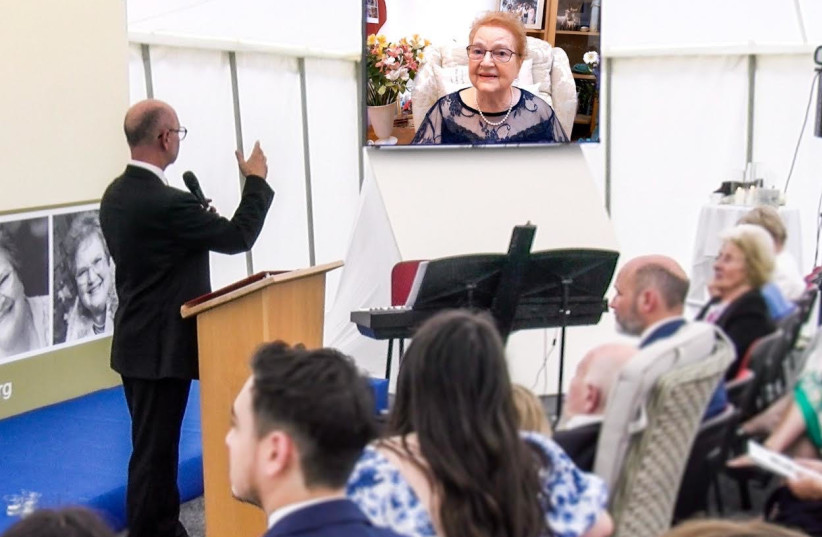Holocaust educator Marina Smith was able to speak at her own funeral this week through the use of a new Artificial intelligence holographic video technology.
The video started with a speech given by the holographic representation of Smith about her life, after which she answered questions from the people who attended the ceremony.
The technology was developed by AI company StoryFile led by Smith's son Dr. Stephen Smith, who is the company's co-founder and CEO.
"Mum answered questions from grieving relatives after they had watched her cremation," he told the Telegraph. "The extraordinary thing was that she answered their questions with new details and honesty. People feel emboldened when recording their data. Mourners might get a freer, truer version of their lost loved one."
"People feel emboldened when recording their data."
Dr. Stephen Smith

Who was Marina Smith?
Marina Smith began her career as a teacher but soon found that she was passionate about trying to eradicate antisemitism and educating people about the Holocaust.
At the end of the 70s, she and her husband, Reverend Eddie Smith, bought a ten-bedroom farmhouse and renovated it into a Christian conference and retreat center which they named Beth Shalom (House of Peace).
A few years later, after finding inspiration from Yad Vashem and other European Holocaust memorial sites, the Smiths converted Beth Shalom into what is now the UK National Holocaust Center in Nottingham where Marina was the first education director.
She passed away in June at the age of 87.
How does StoryFile create the AI?
StoryFile's new technology works by filming a person answering questions about their life with 20 cameras. Analysts then analyze the video and teach the AI which are the appropriate answers to questions asked after the person's passing.
The idea came to co-founder Heather Maio-Smith 12 years ago when she was interviewing Rose Schindler for an exhibit on Holocaust survivor testimonies. When she realized that future generations won't be able to get first-hand narratives from survivors, she thought of creating AI holographic recreations to answer questions based on the answers given by the real person before they died.
In 2017, StoryFile was launched to make the technology available for everyone.
